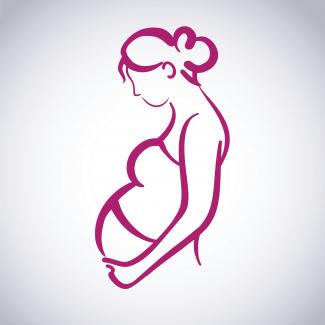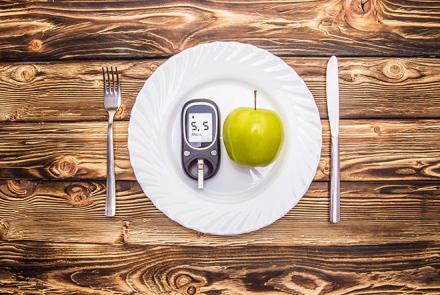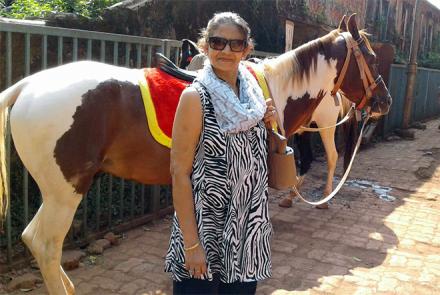
Dr Kanika Chaudhuri, practicing consultant Obstetrician and Gynaecologist, Singapore talks of the Risks of Gestational Diabetes and how to control diabetes before, during and after pregnancy
As the age of childbirth goes up due to changing demographics, we are seeing more patients with pre-existing diabetes and the incidence of Gestational diabetes mellitus (diabetes developing in pregnant women) is also on the rise. Both these conditions need multi-disciplinary management to prevent any long-term impact on both the child and the mother’s health.
Management of diabetes for these women has two phases. It involves:
- Good control of diabetes before conception (before becoming pregnant), especially for those who have pre-existing diabetes. Read about Pre-conception Care for a Healthy Pregnancy
- Good control during pregnancy itself
Why diabetes control is critical for a healthy pregnancy :
Good diabetes control needs to be in place even before one conceives. This is because diabetes is associated with birth defects in babies. If you have diabetes and are planning a pregnancy, you need to consult your doctor about 6 months before beginning to try for a pregnancy.
Poor glycaemic control (poor glucose control) in pregnancy affects the fetus and the mother in the following ways:
- Fetuses are prone to developing congenital malformations, especially cardiac defects and spinal deformities.
- Fetuses tend to be overweight leading to macrosomia (big baby). These babies are prone to birth injuries and difficult delivery.
- For the mother, there is a tendency of worsening of complications of pregnancy and its effect on the kidneys, eyes, nerves etc. The damage is irreversible.
- Labour can be difficult with more risk of having a caesarean section and assisted delivery, especially if the baby is of big size( over 4kg weight).
Here are some points to keep in mind before, during and after pregnancy :
Before and during pregnancy
- Consult your endocrinologist about 6 months before becoming pregnant.
- Get your diabetes management team together: The team includes obstetrician, endocrinologist, dietitian and diabetes nurse educator. The team needs to coordinate with each other for the best possible care for the mother.
- Keep blood sugar under control: the range for fasting glucose is 3.5mmol -4.5mmol; post prandial range is 6.5-10mmol; HbA1c – 6 (which shows the control over past 3 months).
- Check blood glucose seven times during the day. This includes fasting glucose, and before and after each meal - that is breakfast, lunch and dinner. This is done at least twice a week for newly diagnosed diabetes and daily for those with pre-existing diabetes.
- During pregnancy, the requirement of insulin and other oral medications for treating diabetes will increase. You need to seek the doctor’s advice about how to adjust the medication.
- Previously oral medications were considered harmful in pregnancy. Now there is new evidence that some of the oral hypoglycaemic medications are safe. Some women achieve better control with a combination of insulin and metformin.
- You (the mother) need to be aware of signs of hypoglycaemia or low sugar, such as sweating, feeling faint and dizzy. As there may be frequent escalation of insulin dosage, there is always the risk of very low sugar, which can be dangerous. You need to keep some sweets with yourself all the time so that if you feel the symptoms of low sugar, you can quickly consume the sweets to stabilise blood sugar and get help from a doctor immediately.
- Dietary restrictions as advised by the dietitian need to be followed. Certain foods need to be avoided completely, such as sugar, and sweet things like cakes, chocolates, ice creams etc. Certain food items need to be taken in measured amounts, such as rice, bread, noodles etc. Brown bread and brown rice are preferred due to their low glycaemic index. Some fruits that are very sweet have to be avoided as well, such as grapes and bananas. Eat generous portions of vegetables.
Read: How to Control Gestational Diabetes during Pregnancy?
Labour
- During labour, special care needs to be taken to continuously monitor the mother’s blood glucose level and the insulin dose adjusted accordingly.
- Patients will need to deliver by 38 weeks. The reason is there is risk of intrauterine death of baby in diabetic mother and the risk for this increases after 38 weeks of pregnancy. The cause for this is still not clearly defined. Unless the mother goes into spontaneous labour before that, labour will be induced (initiated with medication). There is a higher chance of delivery by Caesarean section and assisted delivery (the use of forceps or vacuum) as at times induction may fail or because of the big size of the baby.
Post-delivery
- The baby may need to be observed in Neonatal intensive care unit as they are prone to fluctuation in glucose level immediately after birth.
- Breast feeding is not contraindicated and is beneficial for both mother and baby.
- The mother is likely to go back to her previous insulin regimen and medications within 6 weeks of delivery. She will also need to decide on family planning measures as it is possible to get pregnant inspite of breastfeeding the baby.
















